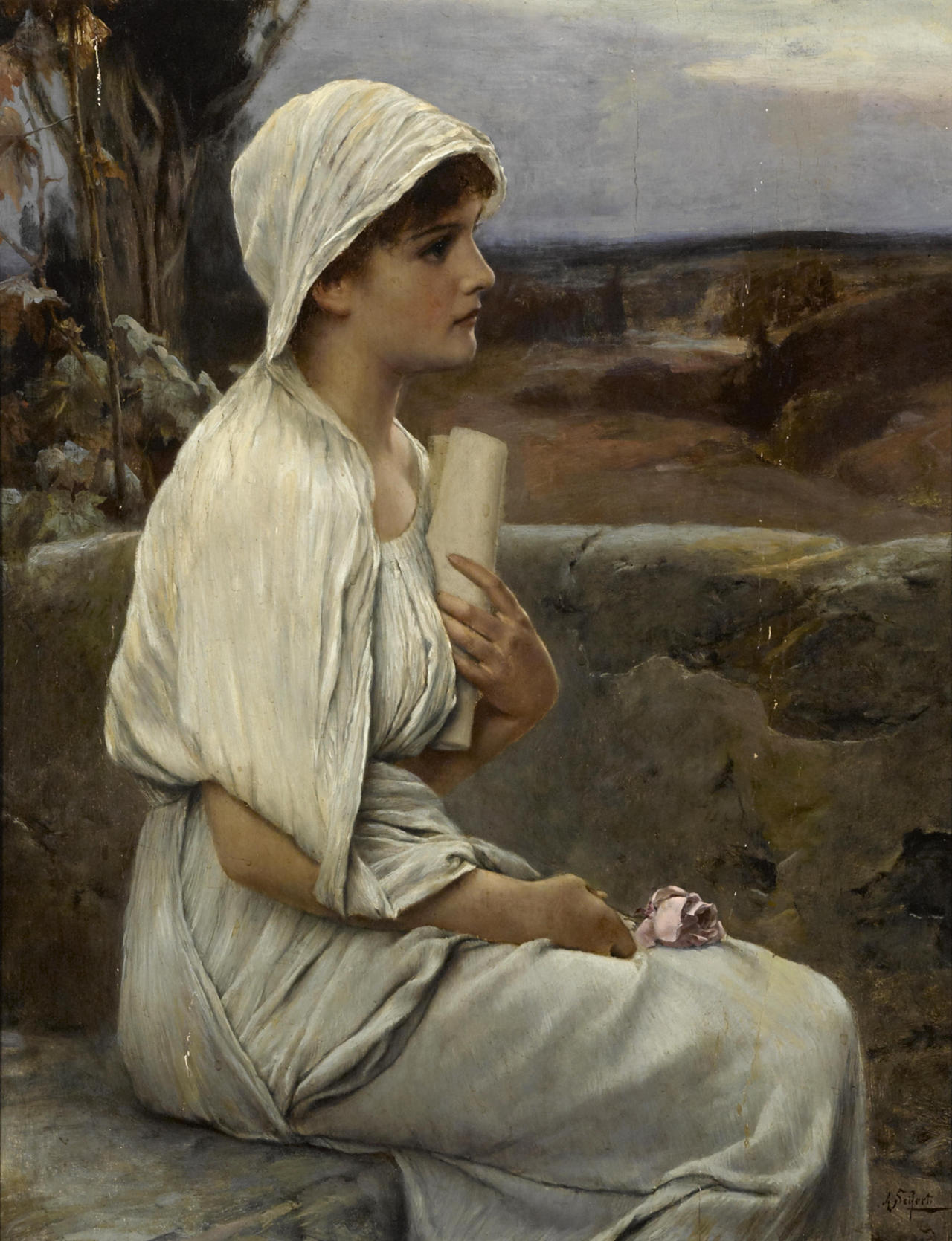Question: Are there any female Greek philosophers besides Sappho? (Who was more of a poet.)
Oh, man, are you kidding?
Ancient Greece was full of philosophical ladies, even though they don't get as much good press as dudes like Aristotle or Socrates. Let me tell you about a badass lady named Hypatia of Alexandria.
Hypatia was the head of the Platonist school at Alexandria, where she was hailed as basically the most awesome philosopher of her generation. Not only was she excellent at teaching Plato and Plotinus to eager students, some of whom traveled hundreds of miles to study under her, she was also a gifted mathematician, astronomer and inventor and one of the foremost minds calling for the triumph of science over outdated ideas of inborn qualities of nature. She was also reportedly extremely charismatic, so much so that she regularly gave speeches and lectures to law officials, ruling bodies and public assemblies, and was generally respected wherever she went. She authored various works in astronomy, mathematics and philosophy, although there's a lot of controversy about whether or not she actually wrote them herself, had cowriters, or maybe was just attributed them after the fact, which is pretty common for female writers and philosophers in ancient history (dudes stealing credit for ladies' work is a phenomenon for the ages).
Hypatia is such a badass, in fact, that she was a popular subject for authors, playwrights and artists during the nineteenth century, leading to such artistic gems as those below:
Hypatia's major problem - a problem that indeed much of the Mediterranean was having at this time - was Christianity. Local Christians were unable to make up their minds whether to respect and laud her as a symbol of virtue and conviction or condemn and deride her as a pagan with an agenda. Various people went either way over time, but eventually Hypatia was killed by an angry Christian mob who believed that she had been supporting the non-Christian governor Orestes in a campaign to take power from the local bishops. She was kidnapped, dragged to a church, stripped naked, stoned with pottery shards, and finally burned after her death. This did not actually have the hoped-for effect in the community; Hypatia had been so well-liked and respected that there was a major public outcry against Christians at large after her death, and the civil unrest did not die with her. In versions of this story written later by Christians, Hypatia's worship of pagan gods and desire to force the civic authorities to denounce Christianity is heavily exaggerated, most likely to try to make the Christians in the story look less like jerks.
Hypatia's probably the most famous of female philosophers, but she's not the only one. There were plenty of others throughout history, although they were generally paid less attention than their male counterparts - Hipparchia, Theano, Diotema and more. And Greece is not the only place with female philosophers, either; Ban Zhao in China and Maitreyi in India are examples of prominent female thinkers in eastern cultures, and they're not the only ones, either. It would require at least a dissertation to go into all of them, and I love you all but I don't have that kind of time, so if you're interested in the subject you might want to go hunt up a copy of Mary Waithe's A History of Women Philosophers and do some digging yourself.




Hypatia's life is recounted in a movie called Agora. The reliability of the film is disputed, but it has Rachel Weisz in the lead, and that is always a plus.
ReplyDeleteAlso I don't know if doctors count, but I've always had a soft spot for Agnodike, first female physician of Athens.
Ooh, something to find for our movie nights!
Delete